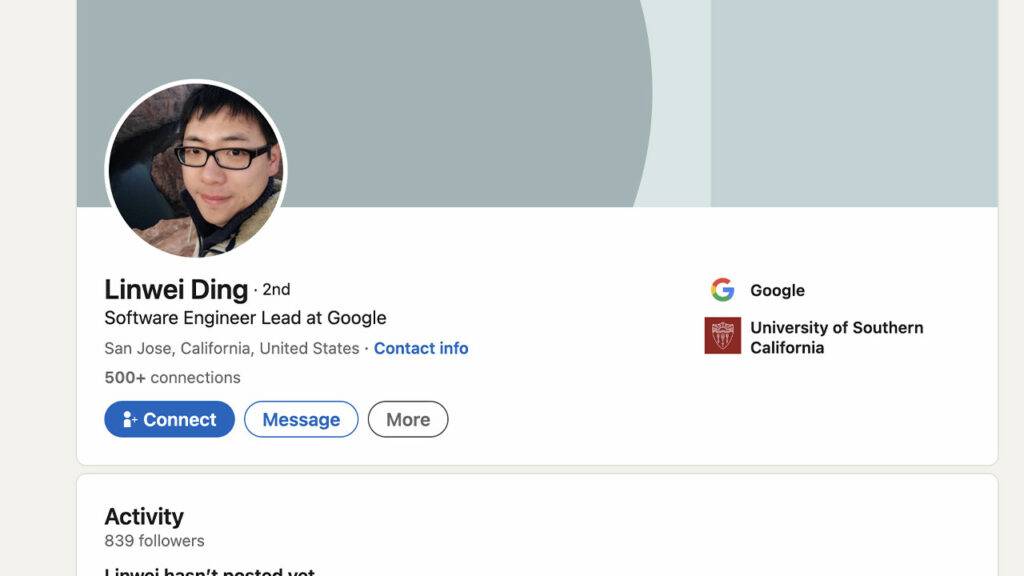In a shocking turn of events, Linwei Ding, a Chinese software engineer, also known as Leon Ding, finds himself at the center of a controversy, facing serious allegations of stealing artificial intelligence technology from none other than tech giant Google. The unfolding events shed light on the intricate web of secrecy and corporate espionage that seems to have entangled Ding.

Who is Linwei Ding?
Ding, aged 38, is now grappling with four counts of theft of trade secrets, as stated by US Attorney General Merrick Garland. The charges revolve around Ding’s purported act of transferring confidential information from Google’s network to his account.
What makes this case particularly intriguing is the revelation that Ding was clandestinely affiliated with Chinese-based companies in the AI industry during his tenure at Google.
Garland emphatically declared, “The justice department will not tolerate the theft of artificial intelligence and other advanced technologies that could put our national security at risk.” This stance underscores the gravity of the situation and the potential implications for both technological innovation and national security.
Google Engineer Accused of Theft
Ding’s arrest has brought to light the extent to which individuals associated with companies based in the People’s Republic of China may go to secure American innovation.
FBI Director Christopher Wray emphasized the seriousness of the issue, stating, “The theft of innovative technology and trade secrets from American companies can cost jobs and have devastating economic and national security consequences.”
The indictment against Ding outlines the timeline of his alleged misdeeds. Hired by Google in 2019, Ding played a role in developing the software utilized in Google’s supercomputing data centers. Between May 2022 and May 2023, he purportedly began surreptitiously uploading confidential Google information into a personal cloud account.
The stolen files were said to be related to the hardware infrastructure and software platform crucial for Google’s supercomputing data centers to train large AI models through machine learning.
The Web of Deception
In June 2022, Ding was approached by the CEO of Beijing Rongshu Lianzhi Technology Co (Rongshu), a Chinese early-stage technology company. The indictment revealed that Ding was offered the position of Chief Technology Officer with an enticing monthly salary of $14,800.

Further complicating matters, Ding established his own China-based company, Shanghai Zhisuan Technology Co (Zhisuan), and assumed the role of CEO, all while still employed by Google.
Crucially, Ding never disclosed his affiliations with Rongshu or Zhisuan to Google, a serious breach of trust and professional conduct. Even after he resigned from Google in December 2023, the company’s subsequent investigation into Ding’s network activity history unveiled the unauthorized uploads during the May 2022 to May 2023 period.
Google’s Response and Legal Consequences
Google, renowned for its stringent security measures, swiftly responded to the breach. Jose Castaneda, a Google spokesperson, affirmed, “After an investigation, we found that this employee stole numerous documents, and we quickly referred the case to law enforcement.” The company expressed gratitude to the FBI for its assistance and committed to continued cooperation with law enforcement.
Linwei Ding now faces the daunting prospect of a maximum penalty of 10 years in prison for each count of theft, coupled with a potential fine of up to $250,000. The severity of these consequences underscores the US government’s commitment to safeguarding its technological advancements and preventing unauthorized access to sensitive information.
As this case unfolds, it serves as a stark reminder of the ongoing challenges in the realm of technology and the need for vigilance against potential threats to innovation and national security.


